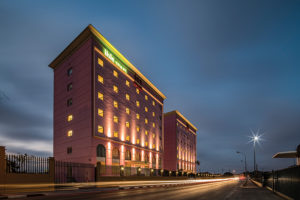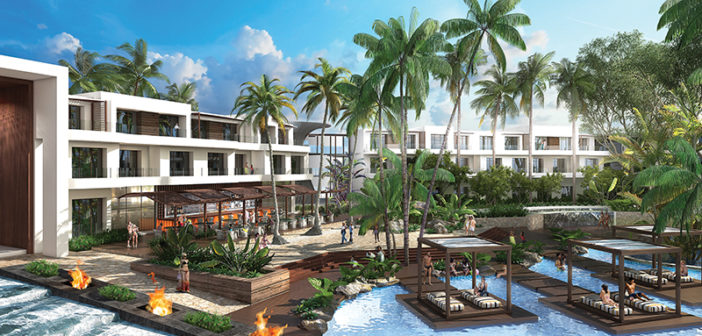NATIONAL REPORT—Africa is the world’s second largest and second most populous continent—so it stands to reason the hospitality industry would see it as a place of untapped potential.
Last month, JLL released research, Spotlight on Africa: A Diverse Frontier, an overview of hotel real estate in Sub-Saharan Africa, that forecast $1.7 billion to be invested in hotels in the region in 2017 and a further acceleration to $1.9 billion in 2018. Global hotel transactions rose nearly 50% to $85 billion in 2015—the second-highest year ever, according to JLL—and the supply growth forecast in Sub-Saharan Africa for 2016 to 2018 is 3.5%.
“The continent is massive: There are 54 countries, 54 capital cities and a lot of cities with more than a million people, so there’s a lot of opportunity to grow our brands in Africa. There is a huge undersupply of quality hotels. Even today, there is still a huge undersupply in a number of African countries,” said Andrew McLachlan, SVP, business development in Africa & Indian Ocean, Carlson Rezidor Hotel Group.
“It’s really the land of opportunity of the 21st century,” said Antoine Guego, COO, Accor HotelServices for Africa & Indian Ocean. “There is a very important need for branded hotels in Africa because of the economic development of the continent, due to the demographics and the ascension of a lot of Africans to the middle class. Especially in the three- and four-star markets, that need is absolutely important. This is a territory where the hotel development will boom in the coming 10 to 20 years.”
For 2016, the GDP growth forecast for the region has slowed to 3% from an average between 2010 and 2015 of 6%, but JLL said this is expected to accelerate to 4.1% in 2017 and 2018, driven by the large regional markets. According to the research, the challenging economic climate in West Africa has shifted economic growth toward East Africa.
McLachlan expanded, “Overall, the GDP growth in Africa is very good. Sub-Saharan Africa, which is 48 of the countries, consistently has seen double the GDP growth of the rest of the world over the last 15 years. At the moment, some countries in Africa are a bit softer, which are the countries that are linked to commodity prices, but there are others that are still booming with double-digit GDP growth—take Ethiopia as an example. It’s the fastest-growing economy in Africa today, with over 100 million people.”
JLL cited several growth fundamentals: high population growth (1.2 billion in 2015 to a forecast 1.5 billion in 2025); urbanization (40% in 2015 to a forecast 44% in 2025); high GDP growth ($1.4 trillion in 2015 to an expected $2.2 trillion in 2025); high tourism growth (38 million arrivals in 2015 and an expected 58 million arrivals in 2025); a low supply base (there are 2,000 people per room in Africa; by comparison, Europe has 160 people per room); and a demographic dividend (the median age in Africa is 18, while the median age in Europe is 42).

Opened last month, ibis Styles Iu Luanda Talatona in Angola is one of AccorHotels properties in Africa.
McLachlan expanded on several other positives, including significant improvement in airlift so there are more Africans able to travel within the continent, and better trade agreements between the different economic communities.
Short-term challenges include lower oil and other commodity prices; regional political and social instability; global economic and political uncertainty; and the emerging nature of capital markets, said JLL’s research. However, McLachlan pointed out, “If you look at the continent overall, politically, it’s in the best space it’s been in the last 50 years. Between 1960 and 2000, there were 60 coup d’états in Africa; over the last 15 years, there have only been 10. Politically, it’s in much better shape.”
McLachlan added that a big challenge is time to market. “On average, it’s taking us four to four-and-a-half years,” he said, noting in the U.S. or Europe, that time period is usually 24 months. He cited the need to import products not locally available and the lack of the local skill set necessary to design and develop hotels, since many haven’t been built in these areas. “Once the hotels are open, there’s a challenge in identifying the right talent to deliver the brand promise. We’ve often got to start the pre-opening process earlier than in mature markets. But the attitude of the African workforce is fantastic.” Additionally, the owner class is generally new to the industry, with 80% of the brand’s owners in the region being first-time owners.
Guego added that Accor has been in the region since 1975, but agreed that as hotel companies enter the country and owners enter the business, they face challenges: “You don’t know the economics, the administrative, the supply chain of the country. You have to learn step-by-step how to implement and start your business in these countries. It takes a lot of time and patience, and you have to find the right, reliable local partner.”
“The learning curve is much greater,” McLachlan said, but added that it’s a problem that goes away with practice. “We’ve got a lot better at it. Over the last 24 months, we’ve opened a hotel every 60 days in Africa. This year, that was down to every 45 days.”
“Competition is developing,” added Guego. “The Anglo-Saxon companies have awakened, and the appetite for Africa is rising for them and the Chinese. What we are looking at is the need of long-term capacity of certain cities to absorb branded hotels in each category. We are present in all segments, but we believe that in most of these emerging markets there is a vast portion of the population who will need access to good, quality three- to four-star hotels.” HB


